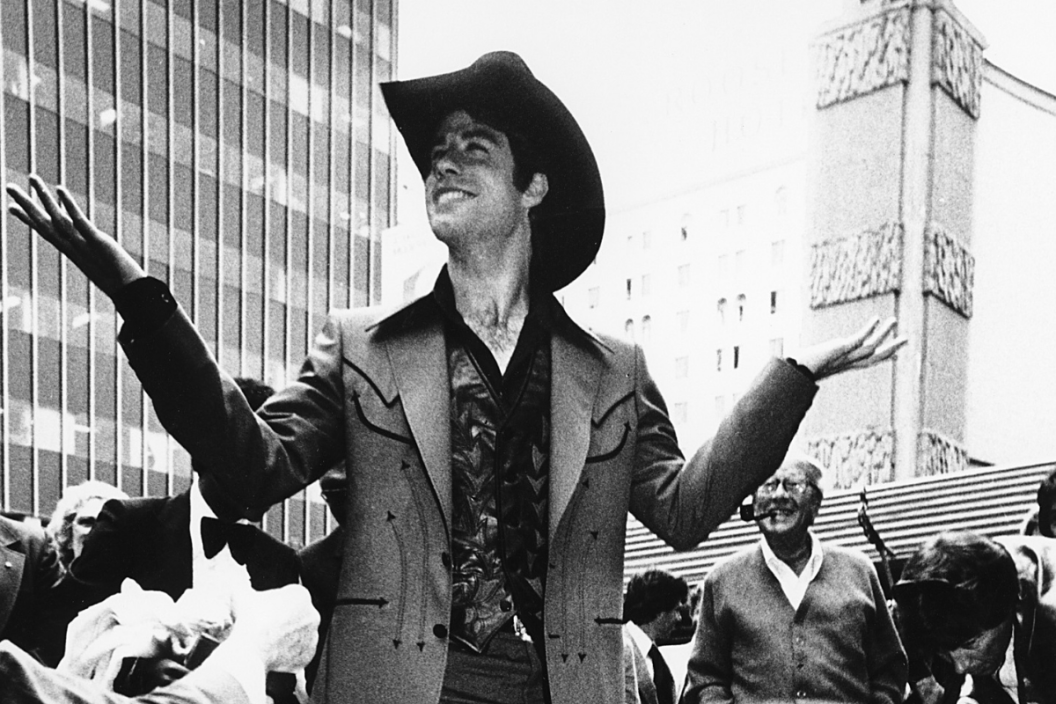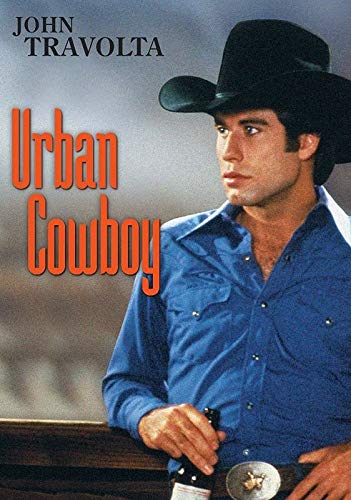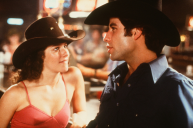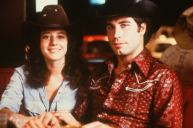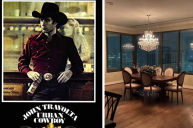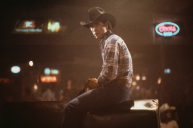"Holy shit. This place is bigger than my whole hometown." Those were Bud's first words when he stepped into Gilley's in the 1980 film Urban Cowboy. It was his -- and most of America's -- first taste of a new kind of honky-tonk culture found only in Pasadena, Texas.
Videos by Wide Open Country
Gilley's Club, founded in 1971 by country singer Mickey Gilley and Sherwood Cryer, was unlike any other. The massive structure housed up to 7,000 people with multiple bars, dance floors, stages, attached rodeo, and all the bar attractions Cryer could find -- including "El Toro," the famous mechanical bull.
Gilley's started primarily because Mickey Gilley was a fledgling singer chasing the fame his cousin Jerry Lee Lewis had already achieved. And Sherwood Cryer knew a smart business move when he saw it -- but didn't know anything about booking music acts. The two became partners, and Gilley's Club was born.
Gilley's was to country what Studio 54 in New York was to disco.
It started a love affair with a country lifestyle. It laid the groundwork for the many copycat clubs in Texas and beyond, including Billy Bob's Texas in Fort Worth (founded in 1981) and Cowboys Dancehall in San Antonio (1998). Though already extremely popular among the locals, Gilley's Club skyrocketed in fame upon the release of Urban Cowboy.
After researching a dysfunctional love story between two real-life patrons of Mickey's Club, Aaron Latham wrote an article for Esquire Magazine called "The Ballad of the Urban Cowboy: America's Search for True Grit." Film director James Bridges and Latham then adapted it into a screenplay. Paramount cast rising star Debra Winger as Sissy. John Travolta, hot off his success from Saturday Night Fever and Grease, signed on to play Bud Davis. Scott Glenn and Madolyn Smith were cast in supporting roles as Wes and Pam, and veteran actor Barry Corbin landed the role of Uncle Bob. It was a classic in the making.
Gilley's Club and the Urbanization of Cowboy Culture
Even before Urban Cowboy, Gilley's Club was bringing out all the Houston city slickers and socialites for a dose of cowboy culture. Cowboys boots were no longer just tools for walking through the crap, thorns, and fields with rattlesnakes. They were part of an outfit for a night out.
The term "urban cowboy" applied to all of the blue-collar oil refinery workers who, unlike Bud, never really worked on a ranch but still wanted to capture the mystique and American romanticization of a real cowboy. Few of Gilley's regulars realized they weren't really cowboys until the film gave a name to what they actually were.
The regulars, also known as "Gilly Rats," made Gilley's kind of like a family, but far from a family place. It was a rough spot at times, and Sherwood Cryer was continually looking for things to divert drunk cowboys from hitting each other (hence the mechanical bull).
But as soon as word of a big Hollywood picture spread, Gilley's and the idea of partying like a country boy gained a whole new level of popularity across the country. Houston was on fire with urban cowboy fever, and the idea of dressing "like cowboys" was no longer just for kids.
How Urban Cowboy Changed Country Music Forever
In some respects, Urban Cowboy and Gilley's owe their success to a significant rise in country's popularity in the late 70s. In turn, country music exploded after Urban Cowboy. That is, of course, thanks to the blending of pop and country prominently featured at Gilley's and in the movie.
The soundtrack from the movie was a country revolution in and of itself. It spawned five top-10 country hits, including four No. 1 singles. Johnny Lee's "Lookin' For Love" was inescapable (and made the two unheard-of teachers who wrote it a lot of money). It truly made Mickey Gilley a star for the first time -- in his 40s. Other country and crossover artists featured on the album included the Charlie Daniels Band, The Eagles (including a solo tune from Joe Walsh), and Bob Seger.
The term "countrypolitan" came to classify the kind of music made famous in the movie, but that's pretty much just because "urban cowboy country" is a mouthful. Kenny Rogers had his pop-country crossover heyday in the 80s after having a No. 1 on the soundtrack. Country stations began popping up all over America, particularly in the Northeast and West, where it was otherwise hard to come by. The Urban Cowboy movement had begun.
No movie ever came close to affecting country music like Urban Cowboy (not even the early 90s' Pure Country starring George Strait), and no club made that more possible than Gilley's. Once country music took hold of the mainstream, it never relinquished its position.
End of an Era
Mickey Gilley and Sherwood Cryer had a falling out after Cryer became increasingly hostile about changes made to the club. Gilley eventually had to sue Cryer over their "50-50" deal, which Gilley argued favored Cryer much more heavily. Gilley won $17 million from Cryer, but it completely shattered their relationship and forced the closing of the club in 1989.
In 1990, Gilley's burned to the ground, shocking the Pasadena locals. Only the recording studios remained. Many showed up to pay their respects to the true end of the club and the end of an era. The fire was ruled arson, and authorities arrested a teenager connected to it. Rumor has it, his family came into quite a bit of money afterward, and though nothing was ever proved, Cryer was known to buy people to get what he wanted.
Though an unfortunate end to the club, it felt fitting. Country music began shifting again in the 90s, and cowboy culture gave way to grunge, alternative, boy bands, and every other trend the 90s brought forth.
The Future of Gilley's
Gilley opened another club in Dallas under the same name in 2006. Of course, it's not the same. An excellent venue, sure, but the heart and soul of Gilley's and the "urban cowboy" is in Pasadena. There's also a Gilley's in Las Vegas, which is the cheap tourist trap replica you'd expect of Vegas. The town of La Porte recently approved a new Gilley's, not far from the original. Maybe proximity will help recapture the spirit of the original.
It's easy to look back on Urban Cowboy with a bit of a sarcastic nod. Like most 80's movies, it seems over the top. But the truth is, the film captured the spirit of a type of nightlife the rest of America yearned for. It brought the "Wild West" back to life. And countless clubs across the country copy that format to this day.
Urban cowboys still flock to clubs in every big city in America. Cowboy boots, hats, pearl snaps, and western wear are still clothes for going out across the United States. And country music still relies on a steady blend of pop music and fashionable trends. The original Gilley's may be gone forever, but the spirit of the club and the urban cowboy live on.
